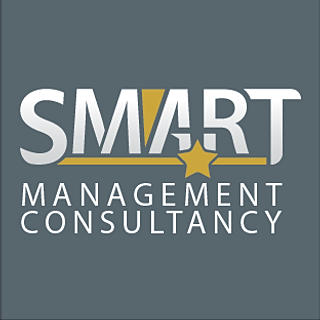Healthcare Accreditation from A to Z: A Professional’s Guide to Quality, Safety, and Excellence
- Smart Management Consultancy
- Jul 11, 2025
- 4 min read

In today’s complex and demanding healthcare environment, accreditation has evolved from a voluntary badge of honor into a strategic imperative. It defines how well healthcare organizations deliver care, manage risk, engage patients, and meet the expectations of regulators and communities. Whether you’re a doctor, nurse, dentist, pharmacist, technician, or administrator, understanding healthcare accreditation is no longer optional, it’s vital.
This blog demystifies accreditation from A to Z, offering a comprehensive guide to its concepts, benefits, requirements, and how professionals at every level can contribute to achieving and sustaining excellence.
A – Accreditation: What Is It Really?
Healthcare accreditation is an external, independent review process that assesses whether a healthcare organization meets established standards of quality and safety. These standards are often developed by national or international regulatory bodies and reflect best practices in patient care, clinical governance, infection control, facility safety, and leadership.
In Bahrain, for example, NHRA (National Health Regulatory Authority) oversees accreditation standards for all healthcare facilities. Internationally, bodies like JCI, CBAHI, GAHAR, or ISQua perform similar functions.
B – Benefits for Healthcare Professionals
• Improved Patient Outcomes through evidence-based care and safety protocols
• Professional Empowerment via clear roles, competencies, and clinical pathways
• Continuous Learning & Development through training, audits, and performance reviews
• Risk Mitigation by applying structured processes and early warning systems
• Job Satisfaction from working in a well-organized, safe, and ethical environment
C – Core Components of Accreditation
Most accreditation systems are built on foundational domains such as:
• Patient-Centered Care
• Infection Prevention & Control
• Clinical Governance
• Human Resource Management
• Facility Safety & Risk Management
• Information Management and Medical Records
• Ethics, Rights, and Responsibilities
• Performance Measurement and Quality Improvement
Every healthcare professional plays a role in implementing, auditing, and sustaining these components.
D – Day-to-Day Role of Staff in Accreditation
Accreditation is not a “manager’s project.” It’s a team-wide commitment.
• Doctors: Lead clinical audits, support evidence-based care, and mentor junior staff
• Nurses: Implement safety protocols, monitor patients, document accurately, and educate families
• Pharmacists: Ensure medication safety, stock control, and prescription compliance
• Technicians: Operate within calibration and safety standards
• Admin Teams: Maintain updated records, coordinate patient experience surveys, and support data management
E – Education and Training
Continuous education is at the heart of accreditation. Healthcare workers must regularly undergo:
• Mandatory CME/CPD hours
• Policy & SOP orientation
• Emergency drills (fire, code blue, evacuation)
• Competency validation programs
Smart Management Consultancy, for example, offers NHRA-accredited online and onsite training programs that align with accreditation standards and boost staff readiness.
F – From Assessment to Accreditation
The typical accreditation journey includes:
1. Gap Analysis
2. Policy & SOP Development
3. Staff Training
4. Internal Audit
5. Corrective Action Planning
6. Mock Survey
7. Official Accreditation Visit
8. Post-Audit Improvements
A structured timeline and support from consultancy partners like SMART can significantly smooth this path.
G – Global vs National Accreditation
• Global Accreditation Bodies (e.g., JCI, Accreditation Canada) offer international recognition and benchmarking
• National Authorities (e.g., NHRA in Bahrain, GAHAR in Egypt, CBAHI in Saudi Arabia) ensure compliance with local laws and healthcare priorities
For most facilities, national accreditation is mandatory, while international accreditation enhances global reputation and trust.
H – How SMART Empowers Facilities
Smart Management Consultancy provides end-to-end coaching to healthcare organizations across the GCC and MENA regions. Our services include:
• Accreditation Gap Assessments
• Policy & SOP development tailored to NHRA and international standards
• Competency frameworks and HR audits
• Mock Surveys and readiness coaching
• Staff training (onsite and virtual), accredited for CME/CPD
• Patient safety plans, infection control programs, and risk registers
With a 4.9-star rating from over 1100 clients, SMART is a trusted partner for turning compliance into competitive advantage.
I – Involving Patients and Families
Accreditation is not only about internal processes; it’s about engaging patients as active partners in care. This involves:
• Transparent communication
• Informed consent
• Respecting rights and privacy
• Encouraging feedback and complaints
Patient satisfaction scores and experience surveys are critical indicators in any accreditation report.
J – Joint Responsibility
Accreditation is a shared responsibility. It must be led by leadership, owned by clinicians, enabled by administrators, and monitored by quality teams. Everyone in the organization must be aligned to the vision of excellence.
Z – Zero Harm and Continuous Improvement
The ultimate goal of accreditation isn’t just a certificate—it’s a culture of safety, accountability, and zero harm. Accreditation fosters a mindset of continuous improvement where systems are regularly reviewed, performance is measured, and excellence is the norm.
Final Thoughts: Accreditation Is a Journey, Not a Destination
Whether you’re a senior physician or a frontline nurse, a new graduate or a seasoned technician, your role in healthcare accreditation matters. By understanding its principles and applying them in your daily work, you not only help your organization succeed; you safeguard lives.
Let accreditation be more than an inspection; make it your professional philosophy.
How Can SMART Help You?
If your facility is preparing for NHRA or international accreditation, Smart Management Consultancy is here to guide you at every step. Our expertise, tools, and accredited trainings are designed to build competence, close gaps, and create sustainable excellence.
📞 Contact us today to schedule a free consultation or training session:
📲 WhatsApp: +973 36077750















Comments